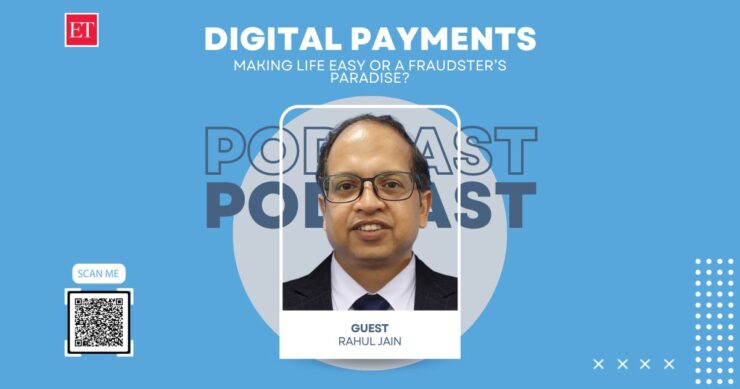
Introduction
India has clocked over 20 billion transactions in the last two months, accounting for nearly 30 lakh core rupees through online transactions. As payment platforms and users grow exponentially, so do cyberattacks.
Are fintech companies safe? What is the role of RBI? And What Will Be The Future Of Millions Of Online Payment Users? Will online payment fraud be stopped? Let’s quest for the answers to these questions with the leading financial experts from the country.
- India has clocked over 20 billion transactions in the last two months, accounting for nearly 30 lakh core rupees through online transactions. As payment platforms and users grow exponentially, so do cyberattacks.
- Are fintech companies safe? What is the role of RBI? And What Will Be The Future Of Millions Of Online Payment Users? Will online payment fraud be stopped?
- Join host Anupriya Nair as she explores this topic on the podcast The Morning Brief, along with guests Rahul Jain, CFO of NTT DATA Payment Services, and Bharat Panchal, Chief Regulatory Officer at Discover Financial Services & fintech expert Pratik Bhakta.
- Pratik Bhakta quotes, “Like a recent BCG and a matrix partners, India report pointed out that by 2030, global payment revenues could go not for 520 billion dollars.”
- The RBI has mandated payment players to apply for a PAPG license. A PAPG is a payment aggregator or payment gateway licence which have been designed in a way that it will only have serious players with proper technical systems evaluated by the regulator who can offer online payments.
- Tokenisation, in simple terms, is changing your unique card number into a random token while saving it on e-commerce portals or other payment gateways. So even if someone steals the card details from the website, they will only have a token, which can only be detokenised by the card networks, which these fraudsters will never have access to.
- Rahul Jain, CFO of Entity Data Payment Services, states, “The payment gateway companies need to be insured concerning how the payment gateways companies are putting the policies with respect to the cyber-related fraud, fraud related to the man in the middle attack, fraud related to the settlement procedures.”
- There are internal checks and procedures that are required to ensure that even employees cannot access personally identifiable data or sensitive payment information.
- Tokenisation mandates that the moment a card is used for any online shopping at any website, instead of the card number, there is a token that will travel throughout the transaction lifecycle. With this mandate, the card data in clear form cannot be stored by anybody except the true component.
- Strengthen your systems & strengthen your internal audit checks to ensure that fraudsters find it much more difficult to siphon funds. That’s the best that they can do for sure & also, a keen eye on background checks when hiring people who are dealing with sensitive data and funds as well as regulation.
Conclusion
RBI plays a key role in protecting digital payments against fraud. The technological breakthrough is another crucial factor as tokenisation has become a new sensation in the online payment world. Make sure to do background checks while hiring to avoid internal fraud in any organisation.


